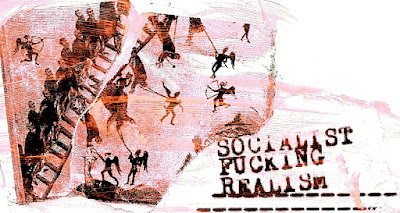This is a larger than usual issue of the journal: it reprints four essays by Sean—on Sun Ra/Amiri Baraka, on Louis-Auguste Blanqui/Louise Michel, and on Anna Mendelssohn, along with the complete ‘Notes on Militant Poetics’—and eleven essays on his work, almost all specially written for the issue, by Tom Allen, Christina Chalmers, Robert Hampson, Lisa Jeschke/Danny Hayward, Esther Leslie, Rob Kiely, Will Rowe, Kashif Sharma-Patel, Vicky Sparrow, Lindsay Turner, and Steve Willey, an editorial introduction by Jeff and myself, and a detailed bibliography of Sean’s work that I prepared based, in part, on prior work by Ian Heames, Justin Katko, and Harry Gilonis. Special thanks, not only to the contributors, but to Eleanor Careless, who patiently guided us through many technical issues, especially along the latter stages of the route to publication...
Jeff and I first spoke about the issue in several phone sessions during the first lockdown in summer 2020; and now we head towards the end of summer 2020 with more catastrophe looming. Here’s a bit from the introduction which, hopefully, speaks to some of this:
We’d like to begin with a brief reflection on what it meant to edit this issue when we did, between the spring of 2020 and the spring of 2022. Sean Bonney died in the autumn of 2019, during the UK general election which saw Boris Johnson elected as prime minister, and a month or so before the first strains of COVID-19 emerged. We first began to edit this issue during a national lockdown in the UK, and a condition of lockdown in many countries worldwide, at a time when social norms expectations and safety nets were even more radically dissembled, with no immediate end point in site.
During this time, reality seemed to have become a Sean Bonney poem [...] Bonney’s work is extraordinarily precise and complex in its disentangling of the relation between metaphor, history, and the actuality of conditions like riot, plague, and starvation: conditions, that as the global pandemic that emerged in 2020 revealed, are far from the mere decorative detail of a distant past, outsourced from the murderously complacent centre of ‘Great Britain’ or ‘Fortress Europe’. Here, plague is somehow at once symptom, cause, and antidote. Bonney attempts to stage the impossible: how to conceive of solidarity when enforced isolation and quarantine seem to make the conditions for collective social life impossible, reinforcing the atomisation that’s already built into each facet of life within contemporary capitalism. The poem doesn’t pretend that it’s reached a new synthesis out of this contradiction: the false balm of a simplified version of dialectics that resolves what remains unresolved in reality, whether in poetry and political theory, or as party line. But with every fibre of its being it wants to push thought past its limit to a synthesis that would move beyond the deadly cost of such contradiction, a desire felt more keenly than ever in the aftermath of Sean’s death, in the ongoing conditions of plague and its after-effects we’re in now.
We’ve said that, in 2020, reality, its landscapes, both internal and external, seemed to become a Sean Bonney poem. But this isn’t quite the right way to put it. It’s not that reality became a Sean Bonney poem. Rather, reality was already a poem by Sean Bonney, a report on the affective truth of social life, ‘the enormous noises of the border // Kreuzberg. Exarchia. Hackney’, taking in everyone from Dante to Ericka Huggins, Blanqui, Ulrike Meinhof and George Jackson: writers who, too, drew their visions from history’s prisons, precarious housing, social immiseration, and periods of ideological crisis.
Here’s the official write-up and Table of Contents:
Co-edited by David Grundy and Jeff Hilson
Volume 14 • Issue 1 • 2022.
(Published September 2022)
-----------------------------
Table of Contents
-----------------------------
Editorial
‘No Simple Explanations’
David Grundy and Jeff Hilson
Sean Bonney: A Selected Bibliography
David Grundy
[Articles]
‘As Simple as Music’: Kinds of Noise in Sean Bonney’s Poetry
Tom Allen
Speaking with the voices of the dead: Sean Bonney, Arthur Rimbaud, Amiri Baraka and revolutionary poetics
Robert Hampson
The State is a Murderous Life-Support Machine: A Conversation about Death
Lisa Jeschke and Danny Hayward
A preliminary reading of Sean Bonney’s ‘What Teargas is For’
Robert Kiely
Notes Towards a Commentary on Sean Bonney’s Letters Against the Firmament
William Rowe
Bonney’s Militant Poetics: Revolutionary Aesthetics, Politics and Black Poetics
Kashif Sharma-Patel
‘This Face of Glee...This Terrifying Sound’: Sean Bonney Through the Soundhole, Where Bonney IS
Stephen Paul Willey
[Essays]
Time Negatives of Variable Universe: On Sun Ra and Amiri Baraka
Sean Bonney
Comets & Barricades: Insurrectionary Imagination in Exile
Sean Bonney
Notes on Militant Poetics
Sean Bonney
‘Minds do exist to agitate and provoke / this is the reason I do not conform’—Anna Mendelssohn
Sean Bonney
The Involution of the Storm Corner: Sean Bonney’s Occult
Christina Chalmers
Bouleversed Baudelairizing: On Poetics and Terror
Esther Leslie
Sean Bonney’s Social Space
Vicky Sparrow
The Poetics of Despair: Listening to Sean Bonney in Charlottesville, Virginia
Lindsay Turner




No comments:
Post a Comment